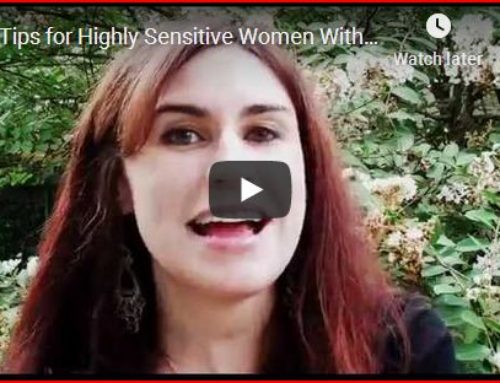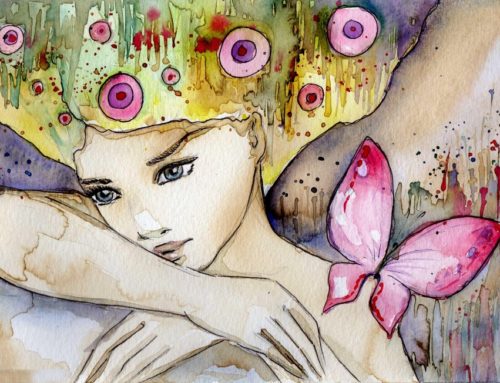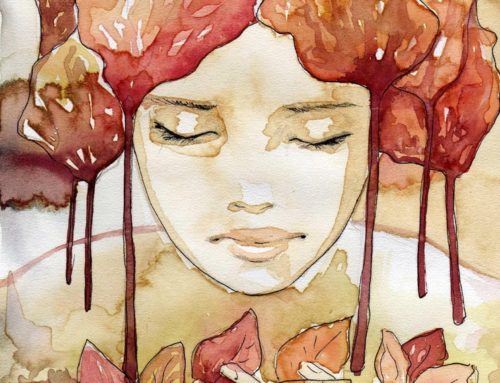 I’ve noticed that most of the people in my life are like me in that they enjoy helping others, and sometimes that results in spreading ourselves too thin, feeling guilty about not being able to give enough, or saying no.
I’ve noticed that most of the people in my life are like me in that they enjoy helping others, and sometimes that results in spreading ourselves too thin, feeling guilty about not being able to give enough, or saying no.
Or maybe it’s worrying more about how other people will be negatively affected by our decisions, and not taking into consideration how we harm ourselves when we put others first.
If you’re not someone who is caring for others in your personal life or in a helping profession, I’m sure you can still relate to this in some way.
After all, you probably provide a service to others for a living. And since what we do for a living is so important to us and so caught up in our identity, I’m sure you strive to provide the very best service you possibly can. So guilt may show up in the form of saying no to customers, clients, co-workers, or managers– or it might even be about taking time for yourself to relax and experience pleasure when there’s still work to be done. It has a lot to do with setting boundaries.
Guilt is one of those emotions that can be a block to manifesting the life you dream of.
If you find yourself consistently reacting with guilt to situations that come up, or feel guilt about things that have happened in the past, you may not be allowing blessings into your life.
The energy of guilt is the opposite of welcoming blessings. The thoughts that go along with feeling guilty are usually about feeling undeserving, lack of control, and harshness towards the Self.The opposite of guilt is a more free form approach to life and putting yourself and your pleasure first in a healthy way.
I have a quote that I want to share with you: “The therapist must survive.”
This statement can easily apply to any identity you have that involves caring, providing, being self-sacrificing, or trying to keep the peace with others: “The (insert necessary description here) must survive.”
Ultimately: “I must survive.”
This quote comes from Dr. Bradshaw, a student of Carl Rogers (a famous psychologist who founded person-centered therapy). This quote really resonates with me, since I think this concept is absent from our mainstream view of professional caregivers.
Consider that a curandera (a Mexican shamanic healer) takes care to ritualistically cleanse herself after working with her clients. She does this to ensure that she does not take negative energy that she is working to remove from them, as a burden to herself. I don’t believe most doctors or other health care providers are even taught to take time to care for themselves. But being a healer can be draining work!
If you recognize that you are experiencing guilt that feels draining, it may seem overwhelming to even consider how to manage it. The emotion of guilt feels authentic even when it’s toxic. It feels unpleasant but also necessary, like it’s a realistic perception of the events we’ve experienced. And in order to live an emotionally healthy life and be able to give from a strong, heart-centered place to others, this is a critical emotion to process.
You may find yourself thinking, “This feeling of guilt feels awful, but I should feel guilty about this. It makes sense that I would.” There may be a fear that you’re letting yourself off the hook if you let go of your guilt. It takes courage and trust in yourself to let go of an emotion like toxic guilt.
So how do you know when you are experiencing valid, healthy guilt or unreasonable, toxic guilt?
Separating Healthy Guilt From Toxic Guilt
Healthy guilt is a functional emotion that is supposed to work for our benefit. It helps us recognize when we’ve done something wrong. It’s a feeling that is meant to prompt us to take action and rectify a situation by apologizing to someone or choosing not to repeat a specific behavior again. It should motivate us to nourish ourselves and our relationships with others. For instance, you might feel guilty if you haven’t visited your aunt who’s in a nursing home. A healthy feeling of guilt would prompt you to schedule a visit in order to extinguish the unpleasant feeling of guilt, and both of you would benefit.
When guilt is experienced in a healthy way, it encourages us to consider the needs of others. If we feel guilty for having more than other people have, we might be inspired to take action and help those who are less fortunate. We may also take care to monitor our actions to avoid feeling guilty in the first place by being more honest and trustworthy.
Toxic guilt is different from healthy guilt, because it lingers. It is either an illusion– there is nothing really to feel guilty about, but we choose to feel guilty in order to maintain a sense of control. Or an action step has not been taken to allow the emotion to flow and resolve itself. Instead the emotion is stuck, perseverating and unresolved. It is the experience of dwelling on mistakes and feeling flawed. There is also a sense of powerlessness, which is not self-affirming. Healthy guilt may inspire you to visit your aunt in a nursing home, but toxic guilt makes you feel like you shouldn’t even take a vacation, because you won’t be able to visit your aunt.
Separating the two can be tricky–almost like untangling necklaces when you first start to do it. It really is a skill that you can develop by increasing your consciousness. You can start by first searching and/or identifying the emotion of guilt and then determining whether it is healthy or toxic.
Check out the next part of this post: 5 Tools for Releasing Toxic Guilt
Would you like to find out the best way you (and only you) can create a targeted plan to manifest your dream and remove emotional blockages that are getting in the way?
Call me for a private coaching session to find out the easiest way to get clear and take your life to the next level.
Call 610-420-3040 or email me at Christina@CoachingWithChristina.com







This is very powerful and full of truth, I, myself, have always lived my life thinking that feeling guilt was a wasted emotion;
however, I still have difficulty knowing when it is appropriate to put yourself first like, for instance, when it would
be counter to what your mate would want you to do. Is there some magic formula.or when you take your vows have you become “we” instead of me?
Hi Jill,
I know what you mean–that kind of guilt comes out for me in relationships too. I guess it’s a matter of having a strong sense of self and boundaries, so you know when to compromise for the “we”, but also when to listen to yourself. The book I read recommended doing small things you might feel guilty about if you always think of your partner first–like making a dinner dish you love even though you know your partner isn’t crazy about it once in awhile. Or even beyond that, it could be coming up with completely new win/win solutions that you’re both absolutely happy with, so neither person is compromising.
[…] Support ← Is Toxic Guilt Blocking Your Bliss? […]
[…] most often accompanied by anxiety, depression, or anger, but can also be the cause of the emotion toxic guilt, which can be associated with perfectionism and not feeling good […]